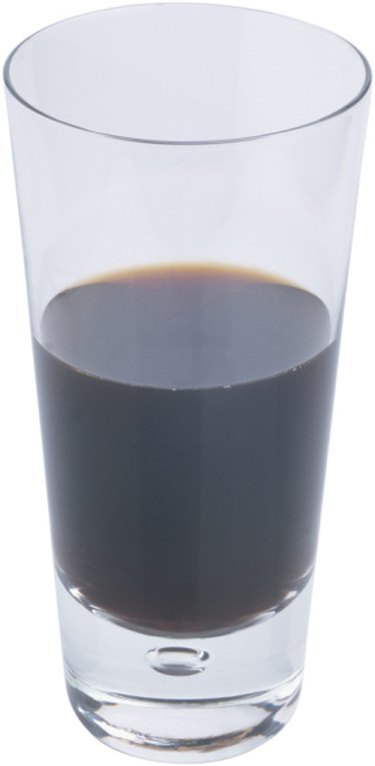
In order to keep your body functioning properly, you need to drink enough liquids to stay hydrated, and your choice of beverage influences your health. Water is the most readily available, milk is a popular choice from infancy and fruit and vegetable juices offer a wide range of flavors. Each of these liquids has its own advantages and disadvantages, and the healthiest choice depends on the situation.
Weight Control
Video of the Day
If you are trying to prevent weight gain or lose weight, water is the healthiest liquid to drink for hydration because it is calorie-free. Women need at least 9 cups and men need at least 12 cups of fluid per day, according to the University of Michigan, and drinking caloric beverages, such as juice or milk, can promote weight gain. Tomato juice has 41 calories per cup, and orange juice, prune juice, whole milk and skim milk have between 100 and 182 calories per cup, according to the 2010 Dietary Guidelines from the U.S. Department of Health and Human Services.
Video of the Day
Essential Nutrients
Water is not a natural source of essential vitamins and minerals, and milk is a better choice for strengthening your bones because it provides calcium, which is necessary to build bone. Fortified milk also provides vitamin D, which helps your body absorb and use calcium. Each cup of milk counts toward the three servings per day of dairy products that a 2,000-calorie diet should provide, according to the 2010 Dietary Guidelines from the U.S. Department of Health and Human Services. Fruit juice provides potassium and vitamins, and it contributes to your recommendations to get 2 cups per day of fruit or fruit juice.
Glycemic Index
Water and milk are healthier liquids if you are trying to prevent spikes in your blood sugar levels. Water is carbohydrate-free, so it does not affect your blood sugar, and milk is low-glycemic, which means that its carbohydrates do not make your blood sugars increase rapidly, according to the Linus Pauling Institute Micronutrient Information Center. 100 percent fruit juice does not contain added sugars, but it has a high glycemic index because of its fructose, a natural sugar in fruit. Over time, a high-glycemic diet can lead to a higher risk for type 2 diabetes.
Sports Nutrition
Water is a healthy choice before, during and after all kinds of workouts and athletic competitions to prevent dehydration, according to Iowa State University. If your competition lasts longer than 90 minutes, fruit juice is a source of quickly digested carbohydrates to maintain your blood sugar levels. Juice is also the best choice immediately after your workout to replenish muscle fuel stores. Within two hours after a workout, choose low-fat or fat-free milk for a healthy mixture of high-quality protein and carbohydrates.
- U.S. Department of Health and Human Services; Dietary Guidelines for Americans, 2010; January 2010
- University of Michigan; Healing Foods Pyramid: Water; 2010
- Linus Pauling Institute Micronutrient Information Center; Glycemic Index and Glycemic Load; Jane Higdon; December 2005
- Iowa State University Extension: Eat to Compete: Training Diet